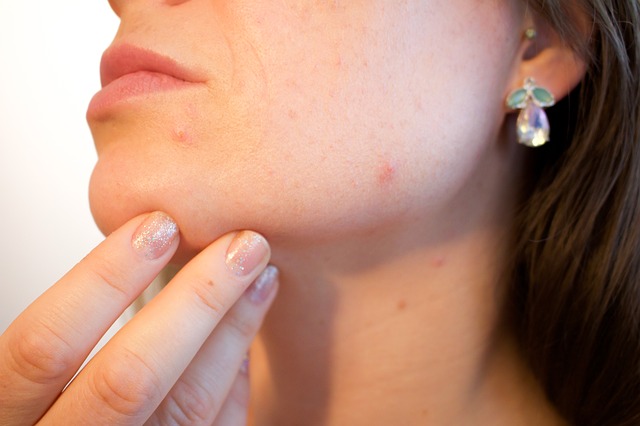Understanding Folliculitis and Thyroid Disorders for Beauticians
In the world of beauty and skincare, understanding the underlying causes of skin conditions is crucial for effective treatment and care. Among the myriad of skin issues, folliculitis stands out due to its commonality and the discomfort it causes. When paired with thyroid disorders, the complexity of managing skin health increases significantly. As a beautician, it's essential to understand the relationship between these conditions to provide comprehensive care to your clients.

What is Folliculitis?
Folliculitis is an infection or inflammation of the hair follicles. It often presents as red, inflamed bumps on the skin, which can be itchy and uncomfortable. This condition can be caused by bacterial or fungal infections, irritation from shaving, or blockages from sweat and oils. Understanding the causes of folliculitis can help in devising effective skincare routines to prevent and treat it.
The Role of Thyroid Disorders in Skin Health
Thyroid disorders, including both hyperthyroidism and hypothyroidism, can significantly impact skin health. The thyroid gland regulates numerous bodily functions, including metabolism, which in turn affects the skin's texture, moisture levels, and overall appearance. When the thyroid is not functioning properly, it can lead to dry, itchy skin or excessive sweating, both of which can exacerbate conditions like folliculitis.
Link Between Folliculitis and Thyroid Disorders
There is a notable connection between folliculitis and thyroid disorders. Thyroid imbalances can alter the skin's natural defenses, making it more susceptible to infections like folliculitis. For instance, hypothyroidism often leads to dry skin, which can result in blocked hair follicles, a common precursor to folliculitis. Conversely, hyperthyroidism might cause excessive sweating, creating a moist environment that fosters bacterial growth, leading to folliculitis.
Identifying Symptoms and Providing Care
As a beautician, recognizing the symptoms of folliculitis is the first step in providing effective care. Look for small, pus-filled bumps around hair follicles, redness, and tenderness. If you suspect that your clients folliculitis might be linked to a thyroid disorder, it is important to advise them to seek medical advice for a comprehensive diagnosis.
Understanding the differences between folliculitis and acne can also enhance your ability to offer targeted treatments. Acne is primarily caused by an overproduction of oil and hormone fluctuations, whereas folliculitis is typically infection-based.
Preventive Measures and Treatment Options
Preventive care is crucial in managing folliculitis, especially for individuals with thyroid disorders. Regular exfoliation can help keep hair follicles clear of blockages. Advise your clients to avoid tight clothing that can irritate the skin and recommend the use of gentle, non-comedogenic products.
For treatment, topical antibiotics or antifungal medications may be prescribed by healthcare professionals. In addition, you can suggest soothing treatments, such as warm compresses, to alleviate discomfort and inflammation. Learn more about effective treatment methods from reputable sources like the Mayo Clinic.
Importance of a Holistic Approach
Incorporating a holistic approach to skincare can greatly benefit clients dealing with folliculitis and thyroid disorders. Encourage clients to maintain a healthy lifestyle that supports thyroid health, including a balanced diet rich in vitamins and minerals, regular exercise, and stress management techniques.
Additionally, staying informed about the latest research and developments in both thyroid health and skin care is vital. Resources like ScienceDirect provide valuable insights into the connections between these conditions.
Conclusion
As a beautician, your role extends beyond aesthetic treatments; you are a key player in promoting overall skin health. By understanding the intricate relationship between folliculitis and thyroid disorders, you can offer informed advice and effective treatments tailored to your clients' unique needs.

FAQs
What is the main cause of folliculitis?
Folliculitis is primarily caused by bacterial or fungal infections, though it can also result from irritation, such as shaving or sweat accumulation.
Can thyroid disorders cause skin problems?
Yes, thyroid disorders can lead to various skin issues, including dryness, itchiness, and conditions like folliculitis, due to altered skin conditions.
How can I prevent folliculitis?
Preventing folliculitis involves maintaining good hygiene, using gentle skincare products, and avoiding factors that irritate the skin, such as tight clothing and excessive sweating.

